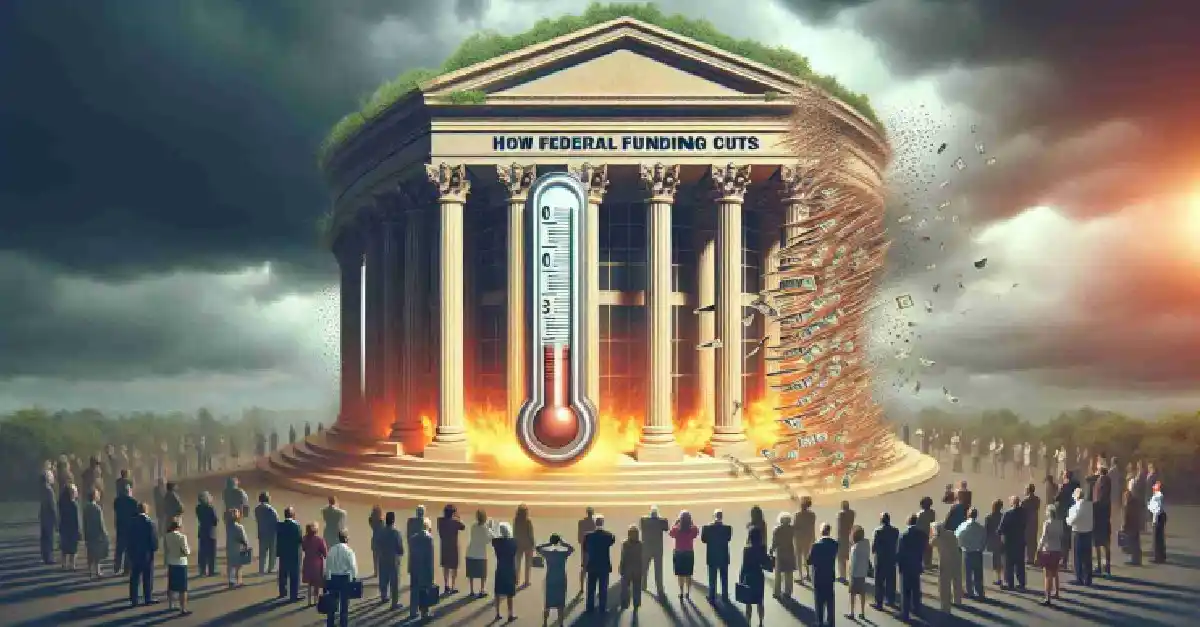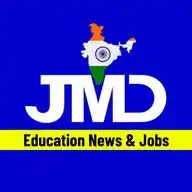
EducationToday News
2.2K subscribers
About EducationToday News
Get daily educational news here.
Similar Channels
Swipe to see more
Posts

https://educationtoday.co/blog/blog-details?id=2876&url=Govt-Institute-of-Science-to-Host-First-Convocation-After-Autonomy-Recognizing-Academic-Excellence *Govt Institute of Science to Host First Convocation After Autonomy, Recognizing Academic Excellence* The Government Institute of Science (GIS), a historic British-era institution in Nagpur, is set to celebrate a significant milestone by hosting its first-ever convocation following its autonomy from Nagpur University in 2021. The highly anticipated event will occur on Tuesday, February 18, 2025, and 258 postgraduate and 141 undergraduate students will receive their degrees. A Historic Milestone for GIS The convocation marks a significant moment in the institute’s 119-year legacy, celebrating its rich academic history and future as an autonomous institution. Since gaining autonomy, the GIS has completed two batches of postgraduate students and one batch of undergraduates, with students benefiting from the institution’s new academic freedom and enhanced curriculum. This event is seen as a turning point in the institute’s journey of educational excellence. Laxminarayan Innovation Technological University (LITU) director Atul Vaidya will be the chief guest at the event, while the director of GIS, Jairam Khobragade, will preside over the ceremony. Other dignitaries from the board of governance, academic council, and board of studies will also be present to honor the students’ achievements. Recognition of Excellence with Scholarships and Awards One of the highlights of the convocation will be the distribution of prestigious scholarships and awards to students who have demonstrated exceptional academic performance. The Sukhdevaji Maharaj of Saongi Memorial Scholarship, which honors academic excellence in six subjects, will be among the awards presented. Each scholarship recipient will receive a gold medal, a certificate, and a cash prize of ₹1,08,080. The Shri Shankar Balwant Pandit Memorial Scholarship will also be awarded in two postgraduate subjects, offering ₹50,000 per semester and a certificate. These scholarships underscore the institute’s commitment to nurturing academic excellence and encouraging students to strive for the highest levels of achievement. Top Achievers: Saumya Pandey and Other Awardees Professor Madhavi Mardikar highlighted the students' students' academic success, noting that the MSc 2023 batch had a 70% pass rate while the MSc 2024 batch had a 68% pass rate. Furthermore, 55% of the BSc final-year students will be awarded their degrees. Among the standout achievers is Saumya Pandey, who emerged as the top student and secured the highest number of scholarships in Chemistry, Botany, and Zoology. Other multiple awardees include Ayushi Hajare, Nishant Chavhan, Rupali Thombre, and Rahul Raut, each receiving two scholarships for their exceptional academic performances. A Tribute to Faculty and Staff Dedication In a heartfelt message, Director Jairam Khobragade attributed the institute’s success to the unwavering dedication of its faculty and staff. "This milestone will redefine how we serve our students and the community," he remarked, emphasizing that GIS’s autonomy will continue to enhance the quality of education it provides. Scholarship Recipients Here’s a list of some notable scholarship recipients for this year: Sukhdevaji Maharaj of Saongi Memorial Scholarship (₹1.08 lakh each): 1. Saumya Pandey 2. Ashraf Joya 3. Tejaswini Nilkanth Shri Shankar Balwant Pandit Memorial Scholarship: 1. Ayushi Hajare 2. Nishant Chavhan 3. Mrunmai Thaware 4. Rupali Thombre 5. Rahul Raut This convocation marks a new chapter for the Government Institute of Science, which is poised to continue its legacy of academic excellence, foster innovation, and contribute meaningfully to the educational landscape in Nagpur and beyond. As the first cohort of autonomous students receives their degrees, the institution sets a high standard for future academic achievements. *For more details visit* https://www.theenn.com/video-01fac4244.html https://youtu.be/j6a2XRpC8p0
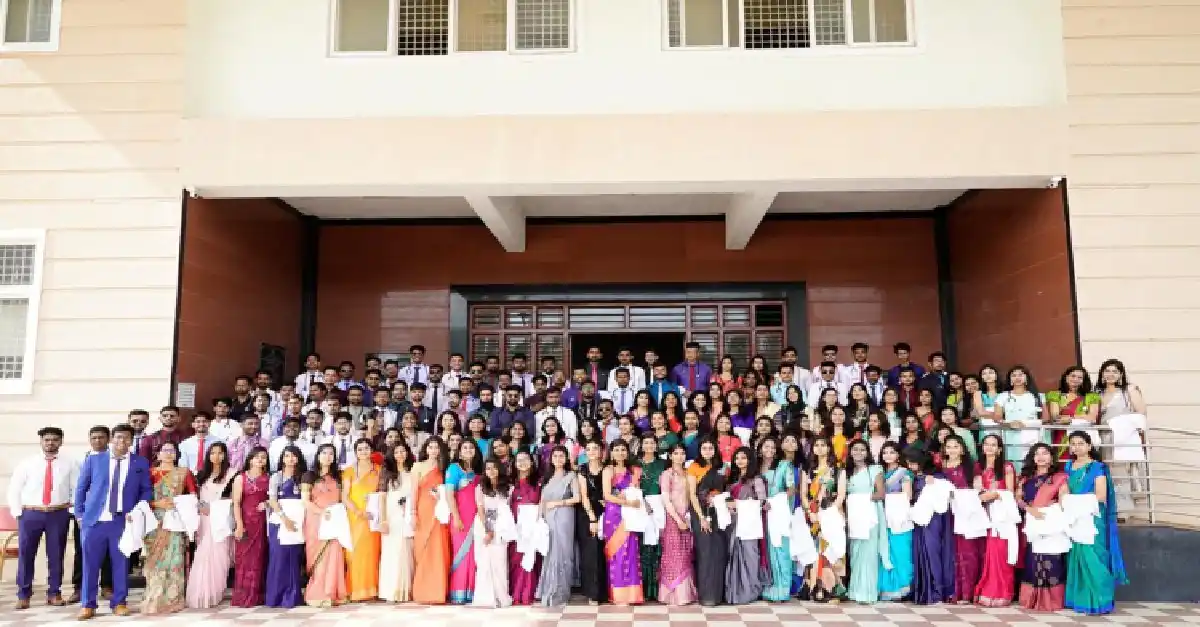

https://educationtoday.co/blog/blog-details?id=2879&url=BS-International-School-Student-Wins-Gold-at-National-Games-A-Testament-to-Excellence *BS International School Student Wins Gold at National Games: A Testament to Excellence* At BS International School, we take immense pride in celebrating the achievements of our students, and today, we bring you an inspiring success story that highlights talent, perseverance, and excellence. Jonathan Gavin Antony, a 15-year-old student from our school, has made history by winning the Gold Medal in the Men's 10m Air Pistol event at the 38th National Games. His victory is not just a personal milestone but a proud moment for our entire school community. A Triumph Against Olympians Jonathan’s achievement is all the more remarkable as he competed against some of the most seasoned athletes in the sport, including Paris Olympic Medalist Sarabjot Singh. Despite his young age, Jonathan demonstrated exceptional precision, focus, and composure, outshining experienced shooters to clinch the top spot on the podium. His victory is a powerful example of dedication and skill prevailing over experience. The Road to Gold Jonathan's journey to becoming a national champion has been one of rigorous training and unwavering commitment. His passion for shooting began at a young age, and with the right mentorship and training, he quickly rose through the ranks. Under the guidance of expert coaches and with the unwavering support of BS International School, he honed his skills through disciplined practice and perseverance. Competing at the 38th National Games, held in Goa, Jonathan faced stiff competition from elite marksmen from across the country. The Men’s 10m Air Pistol event requires extreme concentration, steadiness, and precision—all qualities Jonathan displayed with remarkable poise. As he took his final shots, his steady hands and sharp focus helped him secure the Gold Medal, leaving behind some of the nation’s top athletes. A Testament to Holistic Education At BS International School, we believe that education extends beyond the classroom. Our commitment to a holistic approach to learning ensures that students are encouraged to explore and develop their talents in academics, sports, and extracurricular activities. Jonathan’s victory is a shining example of what can be achieved when students are given the right opportunities, support, and environment to thrive. From early on, Jonathan showed a keen interest in sports, and his passion for shooting was nurtured by our faculty and sports training programs. With access to world-class facilities, professional coaching, and a culture that fosters perseverance, he was able to balance both academics and sports, excelling in both areas. Inspiring the Next Generation Jonathan’s journey from a determined young athlete to a national champion serves as an inspiration to all students at BS International School and beyond. His story underscores the importance of hard work, discipline, and resilience—values that are deeply embedded in our educational philosophy. We hope that Jonathan’s triumph will motivate other aspiring athletes to pursue their dreams with the same passion and dedication. His victory proves that age is no barrier to success and that with the right mindset and support, anything is possible. Pride and Gratitude This monumental achievement would not have been possible without the unwavering support of Jonathan’s family, coaches, and the school administration. Their encouragement and dedication played a crucial role in his journey to the top. We extend our heartfelt gratitude to everyone who has supported Jonathan along the way, including his trainers, school staff, and fellow students who have cheered him on at every stage of his journey. His success is a collective celebration for our school and a proud moment for all of us. What’s Next for Jonathan? Jonathan’s Gold Medal at the National Games is just the beginning. With his talent and determination, he is poised for even greater accomplishments in the world of competitive shooting. His next goal is to represent India at international championships, and we have no doubt that he will continue to make the country proud. BS International School remains committed to supporting Jonathan and other students in their pursuit of excellence, ensuring they have the resources and mentorship needed to succeed on both national and global platforms. Conclusion Jonathan Gavin Antony’s victory at the 38th National Games is a landmark achievement that reflects the spirit of perseverance and excellence fostered at BS International School. His journey is an inspiring reminder that with dedication, hard work, and the right guidance, young talents can reach extraordinary heights. We congratulate Jonathan on his outstanding achievement and look forward to witnessing his future successes. The entire BS International School community stands behind him, cheering him on as he continues to chase his dreams. Here’s to many more victories ahead! *For more details visit* https://www.theenn.com/video-01fac4244.html https://youtu.be/j6a2XRpC8p0


https://educationtoday.co/blog/blog-details?id=2889&url=Is-It-Time-to-Overhaul-IDEA-Addressing-the-Shortcomings-in-Americas-Special-Education-Law *Is It Time to Overhaul IDEA? Addressing the Shortcomings in America's Special Education Law* The Individuals with Disabilities Education Act (IDEA), enacted in 1975, was a landmark achievement in securing educational rights for students with disabilities in the United States. The law guarantees a free and appropriate public education (FAPE) in the least restrictive environment (LRE), ensuring that students with disabilities have the same opportunities as their peers. However, nearly five decades later, IDEA faces significant challenges that hinder its effectiveness in supporting students, educators, and schools. Many experts argue that the law is outdated and no longer aligns with the realities of modern education, making reform imperative. The Growing Demand for IDEA Reform As the educational landscape continues to evolve, the limitations of IDEA have become more apparent. Bureaucratic inefficiencies, inadequate resources for inclusive education, and excessive administrative burdens have led to a growing call for reform. According to Forbes, "IDEA has become bogged down by inefficiency, with many stakeholders pointing out its inability to meet the needs of both students and educators effectively." While IDEA was initially a moral and legal victory, it has struggled to keep pace with advancements in pedagogy, technology, and the increasing diversity of student needs. Addressing these shortcomings requires systemic changes that prioritize both efficiency and the well-being of students with disabilities. Challenges with IDEA’s Current Implementation 1. Limitations of the Least Restrictive Environment (LRE) Concept One of IDEA’s core principles is ensuring students with disabilities are placed in the least restrictive environment (LRE), allowing them to learn alongside their peers in general education settings whenever possible. While this goal is well-intended, its implementation has been problematic. Many schools lack the necessary resources, specialized training, and infrastructure to support effective inclusion. As a result, some students with disabilities are placed in segregated classrooms, limiting their interaction with peers, while others are mainstreamed into general education classrooms without adequate support. This can lead to underachievement or isolation; as Forbes reported, "The current approach often leads to either underachievement or a sense of isolation for students who need more tailored support." 2. The Role and Challenges of In-Class Support Teachers In-class support teachers ensure that students with disabilities receive the necessary assistance within mainstream classrooms. However, many of these teachers are underprepared and overburdened, which diminishes the effectiveness of their support. The lack of adequate professional development and the high demand placed on these educators contribute to burnout and reduced quality of education for students. Moreover, this approach is expensive for schools, and research suggests a minimal return on investment. In some cases, in-class support can unintentionally hinder students' independence or reinforce stigmas surrounding special education. This inefficiency raises concerns about whether the current system is truly beneficial for students with disabilities. 3. Bureaucratic Inefficiencies and Administrative Burden A significant challenge in IDEA’s implementation is the overwhelming administrative burden placed on educators, particularly in managing Individualized Education Programs (IEPs). IEPs are critical in tailoring education plans for students with disabilities, but the amount of paperwork and compliance requirements is excessive. Case managers and special education teachers often spend more time filling out forms and meeting procedural requirements than directly supporting students. This exhausts educators and diverts valuable resources away from meaningful classroom interactions. As Forbes highlights, "Case managers are overwhelmed by the sheer volume of IEP paperwork, which diminishes their ability to provide meaningful support to students." Proposed Reforms for a More Effective IDEA Recognizing these issues, experts have proposed several reforms to modernize IDEA and better align it with current educational needs. 1. Strengthening Inclusive Practices One potential solution is enhancing training for general education teachers to support students with disabilities better. By shifting toward co-teaching models, where unique and general educators work together, students with disabilities can receive more effective instruction without segregation. 2. Streamlining IEP Processes Reducing administrative burdens through automation or standardized templates could help special education professionals focus more on teaching and less on paperwork. Leveraging digital tools to manage IEPs more efficiently would allow educators to dedicate more time to student development. 3. Expanding Early Intervention Programs Early intervention is key to preventing more serious academic challenges. By providing targeted support from an early age, students with disabilities can develop the skills they need to thrive in the education system. Increased investment in early intervention programs could reduce the need for more intensive special education services later. The Future of Special Education in America While reforming IDEA is a complex challenge, the momentum for change is growing. Forbes reported, "The future of special education hinges on a modernized IDEA that can more effectively support students, educators, and schools." Without these reforms, many students with disabilities will continue to face significant obstacles to academic success. Ensuring that IDEA evolves with the needs of today’s students is crucial for fostering a truly inclusive and effective education system. By addressing bureaucratic inefficiencies, improving teacher training, and strengthening support systems, policymakers can create a framework that empowers students with disabilities to reach their full potential. The need for reform is clear—it's time for IDEA to be reimagined for the future of American education. *For more details visit* https://youtu.be/oxZAV0TdUmE?si=MUaiDlTYEqqzPm9X


https://educationtoday.co/blog/blog-details?id=2877&url=Delhi-HC-Urges-DU--BCI-to-Consider-Online-Classes-for-Law-Students *Delhi HC Urges DU & BCI to Consider Online Classes for Law Students* In a recent ruling, the Delhi High Court has encouraged the University of Delhi (DU) and the Bar Council of India (BCI) to consider implementing a system for online classes for law students. This suggestion comes in light of ongoing advancements in technology and artificial intelligence, which could help develop more effective remote learning mechanisms. While acknowledging the importance of physical attendance for professional courses, Justice Dinesh Kumar Sharma noted that technological developments provided a significant opportunity to enhance learning through virtual platforms. The judge made these remarks while dismissing several petitions from law students who had challenged DU’s decision to bar them from sitting for their semester exams due to insufficient attendance. Addressing the Attendance Issue The Delhi High Court refrained from intervening in DU’s decision, emphasizing that it cannot provide relief in cases where attendance requirements are not met under writ jurisdiction. However, the court urged DU and the BCI to evolve a robust system allowing students to attend classes online with proper safeguards and conditions. This recommendation reflects the ongoing digital transformation of education, where universities are increasingly adopting virtual tools to support learning. Justice Sharma pointed out that although physical attendance is significant in professional courses, the rise of technology and AI could offer opportunities to implement remote learning mechanisms that are effective and accessible to students. He suggested that adopting such technologies could be a way forward, especially in the current context of learning becoming increasingly digital and flexible. Proposed Mechanism for Remote Learning In the judgment, the court proposed that DU and the BCI collaborate to create a system allowing students to attend classes online while ensuring appropriate safeguards are in place. This could enable law students to engage with their courses remotely when required without sacrificing the quality or integrity of their learning experience. Moreover, the court emphasized the need for improved communication regarding attendance. It recommended that the Faculty of Law notify students about their monthly attendance status via email, SMS, and WhatsApp. This would ensure transparency, allow students to stay informed about their attendance, and take corrective measures if needed. Guidelines for Attendance Notifications To ensure clarity and fairness, the court directed that the attendance updates for each subject—along with the details of lectures and practicals—should be shared with students regularly. This proactive approach would help avoid misunderstandings and disputes about missed classes or unclear attendance records. A Balanced Approach to Attendance Flexibility The court also suggested that students facing attendance issues be allowed to make representations. In consultation with the BCI, the dean of the Faculty of Law could review these cases and decide on the next steps based on the legitimacy of the requests. The court made it clear that while flexibility is essential, it is equally crucial to maintain the integrity of the law course. The court stressed that relaxing attendance requirements retroactively would undermine the discipline and integrity of the program and could disadvantage students who have diligently followed the rules. Maintaining Academic Integrity While the High Court recognized the potential for online learning to enhance the education system, it also reiterated the importance of maintaining the professionalism and standards of the law course. The court emphasized that the legal education system should uphold strict academic practices, ensuring that students who comply with attendance and discipline rules are not disadvantaged. The ruling clarified that the court would not allow its powers to grant relief in cases where students had shown “manifest disregard of discipline.” This decision underscores the ongoing balance between embracing technology to enhance learning and preserving the values of academic rigor in professional education. As technology continues to reshape education, this ruling allows universities and professional bodies to rethink how to integrate online learning effectively while maintaining academic integrity. *For more details visit* https://www.theenn.com/video-01fac4244.html https://youtu.be/j6a2XRpC8p0
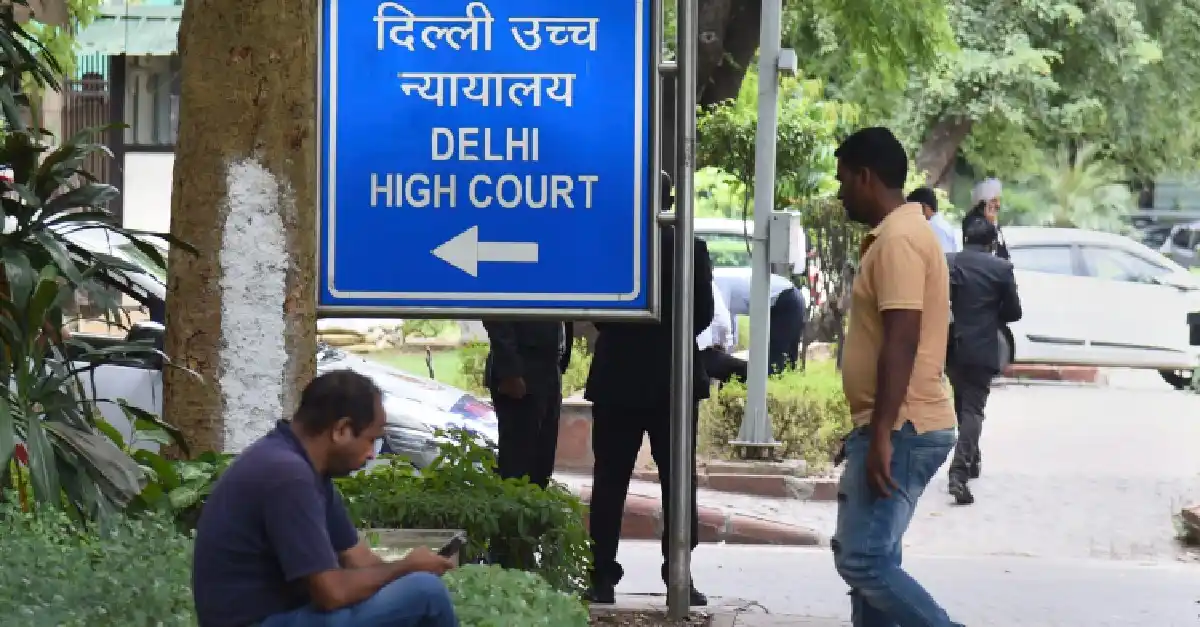

https://educationtoday.co/blog/blog-details?id=2874&url=Over-2500-PG-Medical-Students-Forfeit-Deposits-Resulting-in-Vacant-Seats-and-Rs-7-Crore-Windfall *Over 2,500 PG Medical Students Forfeit Deposits, Resulting in Vacant Seats and Rs 7 Crore Windfall* In a surprising turn of events, over 2,500 postgraduate medical students have forfeited their deposits, choosing not to confirm their admissions to medical colleges under the All India Quota (AIQ). This decision has left numerous seats vacant and has allowed the admission committee to collect a significant sum of money from these forfeitures, which has now topped Rs 7 crore. The amount students forfeited ranged depending on the type of seat they had been allotted. For seats in government colleges, students forfeited Rs 25,000, while those allotted seats in private institutions forfeited a much more significant sum, Rs 2 lakh. This widespread decision to forgo confirmation of admission has raised questions about the admission process and the factors influencing students' choices. The All India Quota and Admission Process The All India Quota is a nationwide system through which a certain percentage of medical seats are reserved for candidates. This system aims to provide equitable access to medical education, allowing students from different states to secure admissions to various prestigious medical colleges. Students are allotted seats based on their preferences and examination rankings. The admission process for postgraduate medical courses, such as MD (Doctor of Medicine) and MS (Master of Surgery), underwent three rounds this year. During these rounds, candidates were allocated seats in their preferred colleges according to their exam ranks and personal preferences. However, despite receiving these allotments, many students opted to surrender their seats and forfeit their deposits rather than confirm their admission. Impact of Deposit Forfeitures According to sources from the admission committee, the forfeited amounts have led to a significant windfall for the committee, amounting to around Rs 7 crore. These forfeitures have occurred mainly due to the following reasons: 1. Non-confirmation of seats in government colleges: Students who had been allotted seats in government medical colleges were required to pay a deposit of Rs 25,000. However, many opted not to confirm their admissions, thereby forfeiting this deposit. 2. Non-confirmation of seats in private colleges: The forfeited amount for those allotted seats in private medical institutions was much higher. Students lost Rs 2 lakh by choosing not to confirm their admission. This scenario is more prominent in private colleges, where students often weigh the high tuition fees and other financial considerations before confirming admission. These forfeitures are not an isolated occurrence. The total number of students who opted to forfeit their deposits under the All India Quota amounts to 2,560, leaving many seats vacant. While some students might have made this decision for personal or financial reasons, others may have had the opportunity to secure better placements in subsequent rounds or choose institutions that aligned more closely with their preferences. The Situation in Gujarat Gujarat is one of the states affected by this trend and has witnessed significant forfeited deposits. Approximately 100 students from Gujarat were among the 2,560 who opted not to confirm their postgraduate medical admissions. Despite this large number of forfeitures, Gujarat has completed three rounds of postgraduate medical admissions. After the third round, 71 seats in medical colleges across the state remained vacant, further emphasizing the extent of the forfeitures and the challenges faced in filling all available seats. This issue of vacant seats is particularly concerning for public and private medical institutions. Vacancies after multiple rounds of admissions indicate that the seats allocated during the All India Quota are not always being utilized efficiently. This could delay filling these positions and may impact the overall quality and accessibility of medical education. Why Did So Many Students Forfeit Their Seats? The reasons behind these forfeitures are varied. Some students may have been dissatisfied with their allotted college or location, while others might have already secured alternative admission offers. For many, the financial burden of attending a particular college, especially private institutions, might have been a deciding factor. Some students also waited for a more favorable seat allocation in later rounds, forfeiting their current allotments. Additionally, a lack of proper career counseling and guidance during the admissions process may have left some students uncertain about their decisions, leading them to give up their seats in favor of other opportunities. Conclusion The forfeiture of over 2,500 postgraduate medical seats under the All India Quota has resulted in the admission committee collecting a substantial sum and leaving numerous seats vacant. This scenario raises questions about the overall effectiveness of the medical seat allocation process and the need for better career guidance and support for students during the admission process. As the situation unfolds, authorities must consider ways to optimize the admissions process and reduce the number of forfeitures in future rounds to ensure that all available seats are filled and that students make informed, confident decisions about their education. *For more details visit* https://www.theenn.com/video-01fac4244.html https://youtu.be/j6a2XRpC8p0
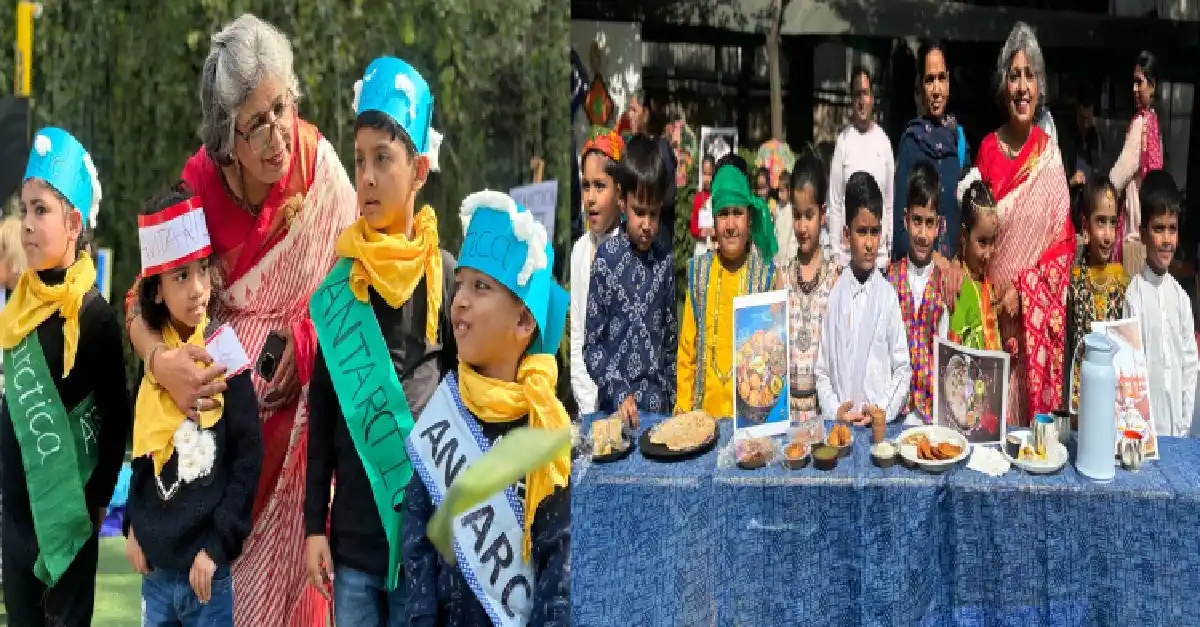

https://educationtoday.co/blog/blog-details?id=2880&url=Haryana-Governor-Applauds-NEP-2020-and-States-Advancements-in-Education *Haryana Governor Applauds NEP 2020 and State's Advancements in Education* The Haryana education sector received high praise from Governor Bandaru Dattatreya, who emphasized the transformative potential of the National Education Policy (NEP) 2020. Speaking at the 34th convocation of Kurukshetra University, where he also serves as Chancellor, Governor Dattatreya lauded the policy’s role in shaping India’s future through innovation, technology, research, and cultural values. NEP 2020: A Catalyst for Change Governor Dattatreya highlighted that NEP 2020 will significantly impact India’s youth, guiding them towards a more developed and knowledge-driven future. He expressed confidence that by 2047, India will become a fully developed nation, aligning with Prime Minister Narendra Modi’s vision. He emphasized that students, as the backbone of progress, must embrace new ways of thinking and learning to contribute meaningfully to national development. Convocation Celebrates Academic Excellence The convocation at Kurukshetra University saw the conferment of PhD, postgraduate, and graduate degrees to meritorious students. Governor Dattatreya congratulated the degree recipients, urging them to remain committed to hard work and honesty in their professional journeys. He reminded students that their path forward would not be without challenges, but resilience and dedication would help them overcome obstacles and achieve their goals. Honoring Excellence: Distinguished Awardees As part of the convocation ceremony, Haryana Chief Minister Nayab Singh Saini was honored with the Doctor of Literature honorary degree for his exceptional contributions to the social and political domains. Additionally, former ISRO Chairman Dr. S. Somanath was recognized with an honorary degree and the prestigious Goyal Peace Prize for his groundbreaking work in space science, enhancing India’s global standing in the sector. Chief Minister’s Vision for ‘Viksit Bharat 2047’ Chief Minister Nayab Singh Saini echoed Prime Minister Modi’s vision for a developed India by 2047, emphasizing the crucial role of youth in nation-building. He stressed that young individuals must be mentally, physically, and morally strong to lead India towards its ambitious goals. Saini also congratulated all students and faculty members for their hard-earned academic success, acknowledging their commitment to education. Transformation in Haryana’s Higher Education Landscape Reflecting on the progress in Haryana’s education sector, Chief Minister Saini noted the significant strides made in the past decade. He recalled that earlier, many young women in the state had to travel long distances for higher education, which led to many being deprived of learning opportunities. To address this issue, the government implemented a strategic initiative to ensure every student has access to quality education near home. Over the past ten years, the Haryana government has established 79 new colleges, including 30 dedicated exclusively to female students. This initiative has significantly improved higher education accessibility and enrollment rates among young women, marking a significant step toward educational equity. A Roadmap for the Future: Inclusive Education Policies As part of the upcoming state budget, the Haryana government is actively seeking suggestions from young citizens to create an inclusive and progressive education framework. The administration aims to allocate resources efficiently, ensuring that education remains a key driver of socio-economic development in the state. Additionally, the Governor emphasized the necessity of continuous assessment and improvement in teaching methodologies to enhance learning outcomes. While the government’s commitment to education reform remains steadfast, the success of these initiatives relies heavily on active participation from students, educators, and policymakers. Conclusion Haryana’s strides in the education sector, backed by NEP 2020, signify a promising future for the state’s students. With the government’s focus on quality education, accessibility, and policy innovation, Haryana is steadily moving towards creating a knowledge-driven society. As Governor Dattatreya and Chief Minister Saini outlined at the convocation, the journey ahead requires collective effort, perseverance, and a forward-thinking mindset from the state's youth to transform the state into an educational powerhouse by 2047. *For more details visit* https://youtu.be/oxZAV0TdUmE?si=MUaiDlTYEqqzPm9X
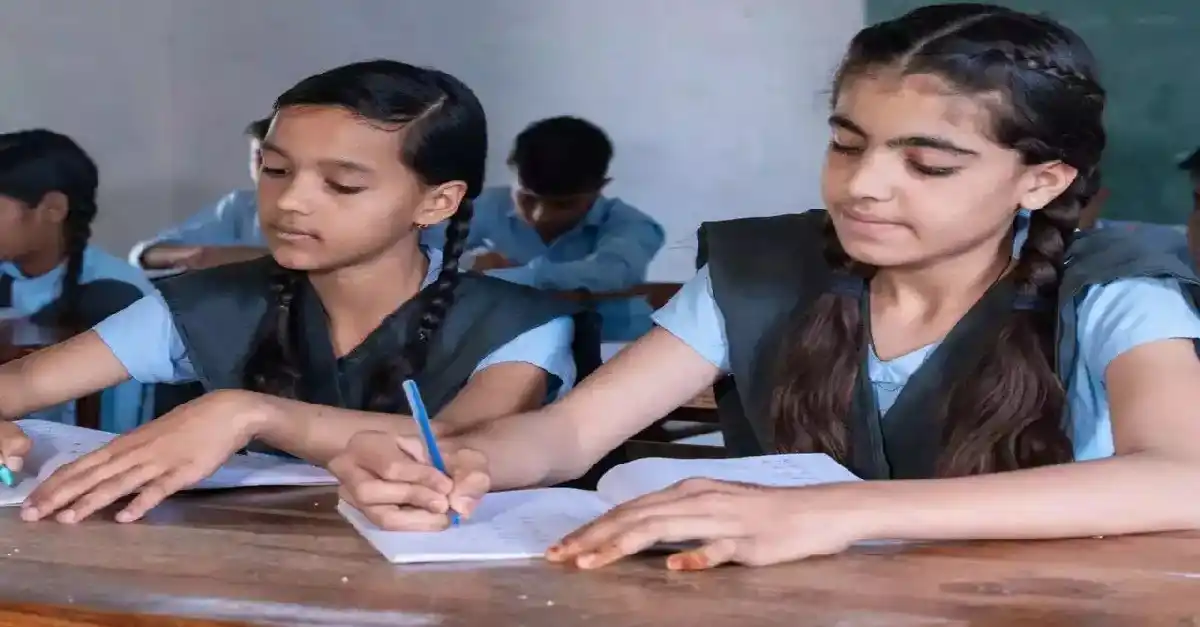

https://educationtoday.co/blog/blog-details?id=2887&url=Madhyamik-Student-Injured-by-Falling-Ceiling-Fan-Displays-Unwavering-Determination-Completes-Exam-from-Hospital-Bed *Madhyamik Student Injured by Falling Ceiling Fan Displays Unwavering Determination, Completes Exam from Hospital Bed* In an extraordinary display of resilience and dedication, a Madhyamik student from Kolkata, Nandini Makal, completed her life science examination from a hospital bed after a traumatic accident during the test. The incident occurred when a ceiling fan fell on her head while she was writing her exam, causing severe bleeding and distress. A Sudden Mishap in the Examination Hall Nandini Makal, a student of Batanagar Jatiya Siksha Mandir, was taking her test at Batanagar Sri Ramkrishna Ashram Vivekananda Vidyamandir in Maheshtala when, just 30 minutes into the exam, a ceiling fan dislodged and fell directly onto her. The impact led to significant injuries, leaving her bleeding profusely and in shock. Onlookers and examination officials immediately took action, rushing Nandini to a nearby health center for first aid. After receiving primary treatment, she was sent back to the examination hall in an attempt to resume her exam. However, the ordeal proved too much for the student, as she collapsed on the table shortly after returning. Medical Emergency and Hospital Transfer Seeing her deteriorating condition, authorities quickly transferred Nandini to Vidyasagar Hospital, approximately 14 km from the examination center. However, the hospital's medical staff soon referred her to MR Bangur Hospital for further treatment. Amidst this chaos, Maheshtala police officer Tapas Singha personally escorted the injured student to the hospital, ensuring her examination papers, question sheet, and necessary stationery were transported safely. A Remarkable Comeback Despite the trauma and pain, Nandini's sheer determination prevailed. After receiving medical treatment at MR Bangur Hospital, she made an unexpected request—she wanted to continue her exam. The hospital staff and authorities, moved by her resolve, made the necessary arrangements, and at 1:10 PM, she resumed writing her paper from her hospital bed. When asked about her unwavering determination, Nandini said, "I prepared well for this paper and couldn't let my hard work go to waste." Her words resonated deeply with many, making her an inspiration for students facing adversities. Authorities React and Investigate Following the shocking incident, Amit Bhattacharya, the headmaster of the examination venue, expressed his deep regret and took full responsibility. He acknowledged that the authorities had checked all infrastructure before the exams, but the incident still occurred. "Luckily, only one blade of the fan touched her. We have now repaired the fan and ensured there are no further risks to other students," he stated. The West Bengal Board of Secondary Education (WBBSE) immediately issued show-cause notices to five individuals associated with the examination venue: the center secretary, the officer-in-charge, the district monitoring team member, the district joint convenor, and the district convenor. A board official stated, "Ahead of the exams, we instructed all centers to be thoroughly inspected. Such incidents are unacceptable and should not occur under any circumstances." More Significant Concerns About Exam Center Safety This unfortunate event has raised serious concerns regarding the safety and infrastructure of examination centers across the state. With thousands of students appearing for board exams yearly, properly maintaining school facilities is crucial to prevent such incidents. Experts and educationists are urging authorities to conduct more rigorous inspections to ensure students can focus on their exams without fear of external hazards. Additionally, the incident highlights the role of emergency protocols in educational institutions. While Nandini was fortunate to receive immediate medical attention and assistance, many wondered if all centers could handle similar emergencies. Calls for stricter safety measures, periodic infrastructure reviews, and immediate response training for staff are now growing louder. A Story of Courage and Perseverance While this incident illuminates critical gaps in school infrastructure and exam center safety, it also serves as a testament to the indomitable spirit of students like Nandini Makal. Her story has captured widespread attention, and many have praised her determination and grit in the face of adversity. Despite the pain and trauma, Nandini refused to let the accident hinder her academic aspirations. Her story powerfully reminds us of the importance of resilience, hard work, and the will to overcome challenges. As educational institutions work to create safer learning environments, students like Nandini continue to inspire a generation with their courage and commitment to their goals. *For more details visit* https://youtu.be/oxZAV0TdUmE?si=MUaiDlTYEqqzPm9X
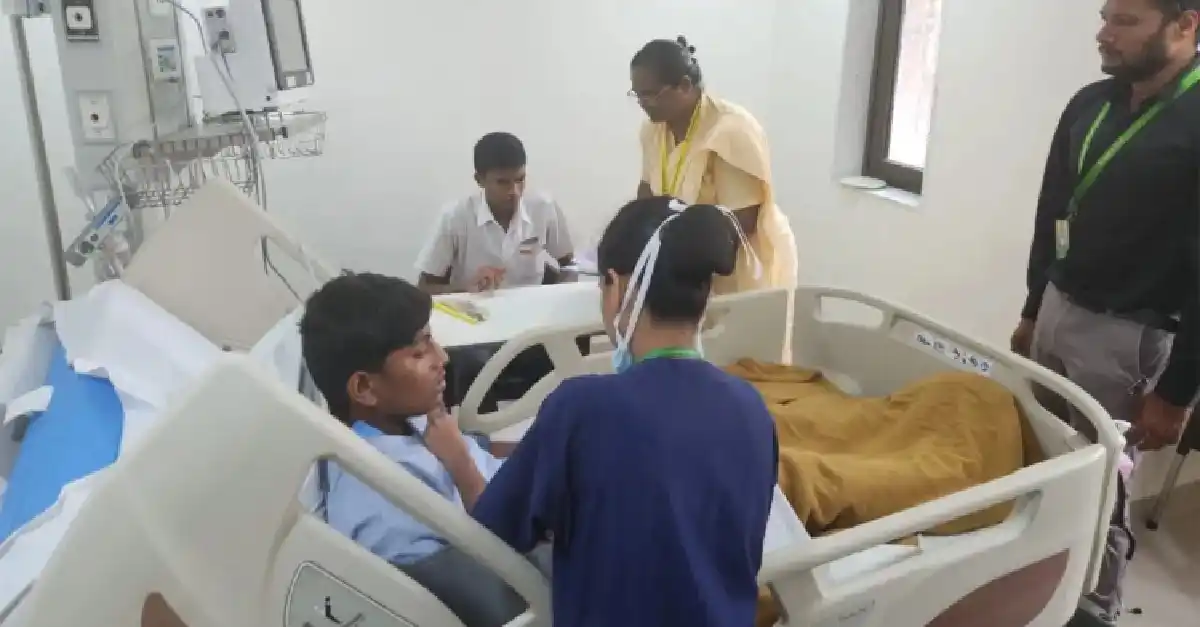

https://educationtoday.co/blog/blog-details?id=2888&url=School-Doors-May-Finally-Open-for-Rohingya-Children-in-Delhi *School Doors May Finally Open for Rohingya Children in Delhi* A recent statement by the Supreme Court of India has brought a glimmer of hope to the children of Rohingya refugees in Delhi, as it addresses their right to education. During a hearing on a petition that sought access to public schools and hospitals for these children, the apex court asserted that if eligible students were denied admission, they could approach the Delhi High Court for redressal. This decision is being seen as a step toward ending the long-standing discrimination faced by refugee children in accessing education. A Ray of Hope for Rohingya Families For years, many Rohingya families residing in Delhi have struggled to enroll their children in government schools. Parents have repeatedly faced rejection without any concrete justification. One such parent expressed optimism, saying, “This could finally end the discrimination our children have faced.” Another parent revealed that their child was persistently turned away from school despite numerous attempts. This development was hailed by education activist and lawyer Ashok Agarwal, who termed it a significant victory for refugee children. “This order ensures that schools can no longer refuse admission to these children,” he said. “Authorities have ignored previous directives, but this ruling will force compliance. We will now actively approach schools and submit applications for these children.” The Legal Perspective and RTE Act Agarwal emphasized that denying education to these children contradicts the Right to Education (RTE) Act. “Education is a fundamental right. If children are living on Indian soil, it is inhumane and illegal to deny them schooling,” he asserted. Despite the legal provisions of the RTE Act, which guarantees free and compulsory education for all children aged 6-14, Rohingya children have faced hurdles due to a lack of identification documents. Schools often request Aadhaar cards, voter IDs, ration cards, or birth certificates, which many refugee families do not possess. Although the UNHCR (United Nations High Commissioner for Refugees) has issued refugee cards to many, schools do not always accept these. Previous Setbacks and Discriminatory Policies In December 2024, the Delhi government issued a directive preventing the enrollment of children from so-called “illegal Bangladeshi migrant” families, a move that indirectly affected Rohingya refugees. A month prior, a civil rights group had written to the Union Home Ministry highlighting cases where Rohingya children from Sri Ram Colony, near Khajoori Khas Chowk, were denied admission to a nearby government school due to lack of specific Indian identification documents. A government school teacher from Northeast Delhi acknowledged the challenges but pointed out that no child can be legally denied education under the RTE Act. “As teachers, we are not authorized to determine whether a child is an illegal migrant or not. While we usually ask for identity documents, we offer provisional admission in cases where children lack them.” However, many schools have continued to deny admission, citing government policies or fear of legal complications. The Role of Civil Rights Groups and Legal Action The persistent exclusion of Rohingya children from schools prompted legal action by the civil rights group Social Jurist, which filed a Public Interest Litigation (PIL) in the Delhi High Court. The PIL challenged the “unlawful actions” of the Municipal Corporation of Delhi (MCD), arguing that refusing school admission to refugee children violated their fundamental rights. The Supreme Court’s latest remarks signal a potential shift. They urge schools to follow the spirit of the RTE Act and provide access to education regardless of nationality or documentation status. What Lies Ahead? While the Supreme Court’s statement is a positive step, the real test will be its implementation. To ensure compliance, schools will need clear government directives. Additionally, advocacy groups will play a crucial role in monitoring admissions and ensuring that refugee children are not turned away under some new pretext. For many Rohingya families, education represents hope—a chance for their children to build a future beyond the hardships of displacement. As legal and social advocacy efforts continue, the coming months will reveal whether these children will finally gain their rightful place in Delhi’s schools or if bureaucratic hurdles will continue to stand in their way. *For more details visit* https://youtu.be/oxZAV0TdUmE?si=MUaiDlTYEqqzPm9X
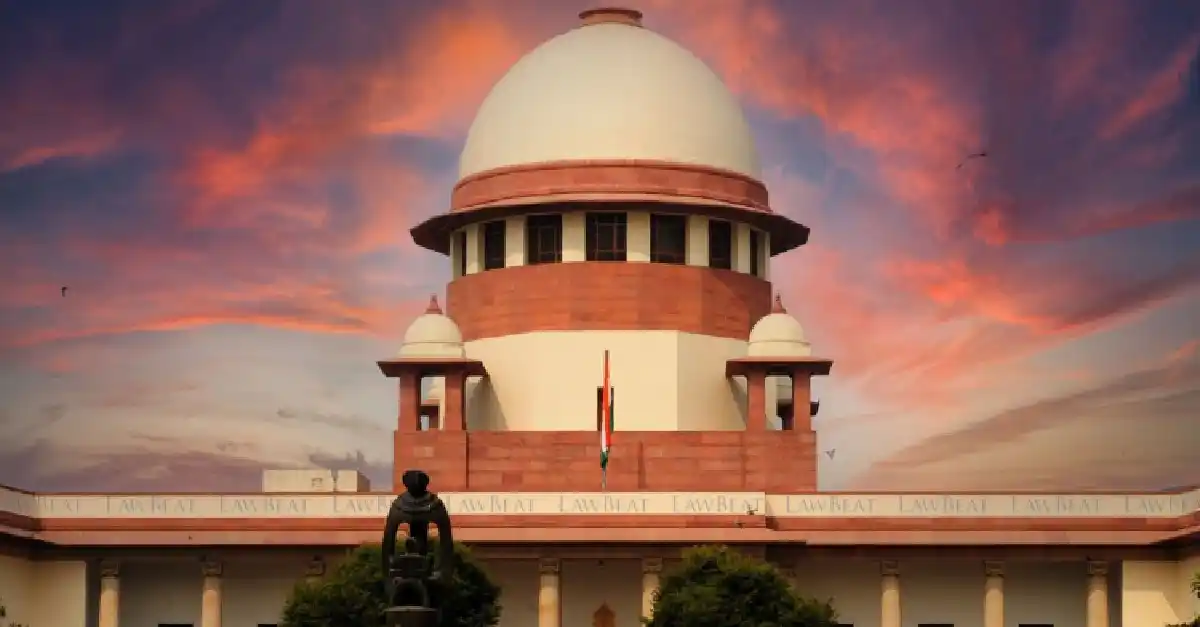

https://educationtoday.co/blog/blog-details?id=2874&url=Over-2500-PG-Medical-Students-Forfeit-Deposits-Resulting-in-Vacant-Seats-and-Rs-7-Crore-Windfall *Over 2,500 PG Medical Students Forfeit Deposits, Resulting in Vacant Seats and Rs 7 Crore Windfall* In a surprising turn of events, over 2,500 postgraduate medical students have forfeited their deposits, choosing not to confirm their admissions to medical colleges under the All India Quota (AIQ). This decision has left numerous seats vacant and has allowed the admission committee to collect a significant sum of money from these forfeitures, which has now topped Rs 7 crore. The amount students forfeited ranged depending on the type of seat they had been allotted. For seats in government colleges, students forfeited Rs 25,000, while those allotted seats in private institutions forfeited a much more significant sum, Rs 2 lakh. This widespread decision to forgo confirmation of admission has raised questions about the admission process and the factors influencing students' choices. The All India Quota and Admission Process The All India Quota is a nationwide system through which a certain percentage of medical seats are reserved for candidates. This system aims to provide equitable access to medical education, allowing students from different states to secure admissions to various prestigious medical colleges. Students are allotted seats based on their preferences and examination rankings. The admission process for postgraduate medical courses, such as MD (Doctor of Medicine) and MS (Master of Surgery), underwent three rounds this year. During these rounds, candidates were allocated seats in their preferred colleges according to their exam ranks and personal preferences. However, despite receiving these allotments, many students opted to surrender their seats and forfeit their deposits rather than confirm their admission. Impact of Deposit Forfeitures According to sources from the admission committee, the forfeited amounts have led to a significant windfall for the committee, amounting to around Rs 7 crore. These forfeitures have occurred mainly due to the following reasons: 1. Non-confirmation of seats in government colleges: Students who had been allotted seats in government medical colleges were required to pay a deposit of Rs 25,000. However, many opted not to confirm their admissions, thereby forfeiting this deposit. 2. Non-confirmation of seats in private colleges: The forfeited amount for those allotted seats in private medical institutions was much higher. Students lost Rs 2 lakh by choosing not to confirm their admission. This scenario is more prominent in private colleges, where students often weigh the high tuition fees and other financial considerations before confirming admission. These forfeitures are not an isolated occurrence. The total number of students who opted to forfeit their deposits under the All India Quota amounts to 2,560, leaving many seats vacant. While some students might have made this decision for personal or financial reasons, others may have had the opportunity to secure better placements in subsequent rounds or choose institutions that aligned more closely with their preferences. The Situation in Gujarat Gujarat is one of the states affected by this trend and has witnessed significant forfeited deposits. Approximately 100 students from Gujarat were among the 2,560 who opted not to confirm their postgraduate medical admissions. Despite this large number of forfeitures, Gujarat has completed three rounds of postgraduate medical admissions. After the third round, 71 seats in medical colleges across the state remained vacant, further emphasizing the extent of the forfeitures and the challenges faced in filling all available seats. This issue of vacant seats is particularly concerning for public and private medical institutions. Vacancies after multiple rounds of admissions indicate that the seats allocated during the All India Quota are not always being utilized efficiently. This could delay filling these positions and may impact the overall quality and accessibility of medical education. Why Did So Many Students Forfeit Their Seats? The reasons behind these forfeitures are varied. Some students may have been dissatisfied with their allotted college or location, while others might have already secured alternative admission offers. For many, the financial burden of attending a particular college, especially private institutions, might have been a deciding factor. Some students also waited for a more favorable seat allocation in later rounds, forfeiting their current allotments. Additionally, a lack of proper career counseling and guidance during the admissions process may have left some students uncertain about their decisions, leading them to give up their seats in favor of other opportunities. Conclusion The forfeiture of over 2,500 postgraduate medical seats under the All India Quota has resulted in the admission committee collecting a substantial sum and leaving numerous seats vacant. This scenario raises questions about the overall effectiveness of the medical seat allocation process and the need for better career guidance and support for students during the admission process. As the situation unfolds, authorities must consider ways to optimize the admissions process and reduce the number of forfeitures in future rounds to ensure that all available seats are filled and that students make informed, confident decisions about their education. *For more details visit* https://www.theenn.com/video-01fac4244.html https://youtu.be/j6a2XRpC8p0


https://educationtoday.co/blog/blog-details?id=2878&url=Federal-Funding-Cuts-Force-MIT-Northwestern-and-Other-Universities-to-Freeze-Hiring-and-Reduce-Spending *Federal Funding Cuts Force MIT, Northwestern, and Other Universities to Freeze Hiring and Reduce Spending* Top universities across the United States, including the Massachusetts Institute of Technology (MIT), Northwestern University, and Washington State University, are grappling with significant financial challenges due to ongoing federal funding cuts. These cuts, which have affected higher education and research budgets, could result in millions of dollars in losses, putting current and future research projects at risk. Federal funding reductions have particularly affected research-driven institutions like MIT, which is losing over $100 million in federal support. In response to these financial pressures, MIT has implemented a hiring freeze for all non-faculty positions. According to reports from Forbes, the university assured that this freeze would not impact faculty members and that exceptions would be made for essential personnel. However, the hiring freeze is expected to affect various departments and research initiatives, adding to the challenges faced by the institution. Tightened Budgets and Increased Scrutiny at Major Universities As federal funding continues to shrink, universities like MIT and Northwestern face mounting difficulties managing their finances. One of the main challenges is the capping of research grant payments, coupled with reduced support from agencies like the National Institutes of Health (NIH). Administrators have been forced to implement strict measures to control spending at Northwestern University. On February 12, 2025, the university announced that raises, hiring, and other new payments would be subject to central review. According to university officials, these steps were necessary to position the institution to navigate the current financial landscape. Similarly, Washington State University has been feeling the pressure. On February 14, 2025, Provost T. Chris Riley-Tillman shared with the university community that the leadership would begin reviewing the university's budget, focusing on "scenario planning for near-term futures." This includes the possibility of a hiring freeze, reduced funding for core programs, and limitations on travel expenses. The university prepares for various financial scenarios, including permanent cuts to essential programs. Impact on Broader University Communities Other universities nationwide must also take drastic steps to adjust to the ongoing funding crisis. North Carolina State University, for instance, has paused all hiring activities as of February 14, 2025. This decision was made due to concerns over potential financial impacts arising from the Trump administration's Executive Orders and the possibility of a government shutdown. Like other institutions, North Carolina State University is bracing for the uncertain financial future created by federal budgetary constraints. As universities across the U.S. announce hiring freezes and reduce non-essential spending, the outlook for American research universities remains uncertain. These institutions, which play a crucial role in advancing scientific research and fostering academic excellence, are at a pivotal point. The future of critical research programs and academic disciplines hangs in the balance, with much of their fate tied to political decisions and ongoing budgetary debates in Washington. Preparing for Fiscal Conservatism and Long-Term Challenges As these budgetary cuts continue to unfold, higher education finance experts are urging universities to prepare for a period of fiscal conservatism. The full impact of the funding cuts may not be immediately apparent, with some universities estimating that the effects may take months or even years to materialize fully. In the meantime, institutions are being forced to make difficult decisions about their priorities and how to balance the need for financial sustainability with their commitment to academic excellence and innovation. For students, faculty, and staff at these affected institutions, the uncertainty surrounding funding cuts raises essential questions about the future of higher education. The ongoing financial strain is creating an environment where universities must make tough choices that will shape the landscape of American higher education for years to come. As these universities work to navigate these fiscal challenges, the impact on research, academic programs, and even job opportunities within these institutions is becoming more pronounced. It remains to be seen how these financial struggles will shape the future of American higher education and whether policy changes will be implemented to provide much-needed relief to these institutions. *For more details visit* https://youtu.be/j6a2XRpC8p0 https://www.theenn.com/video-01fac4244.html
